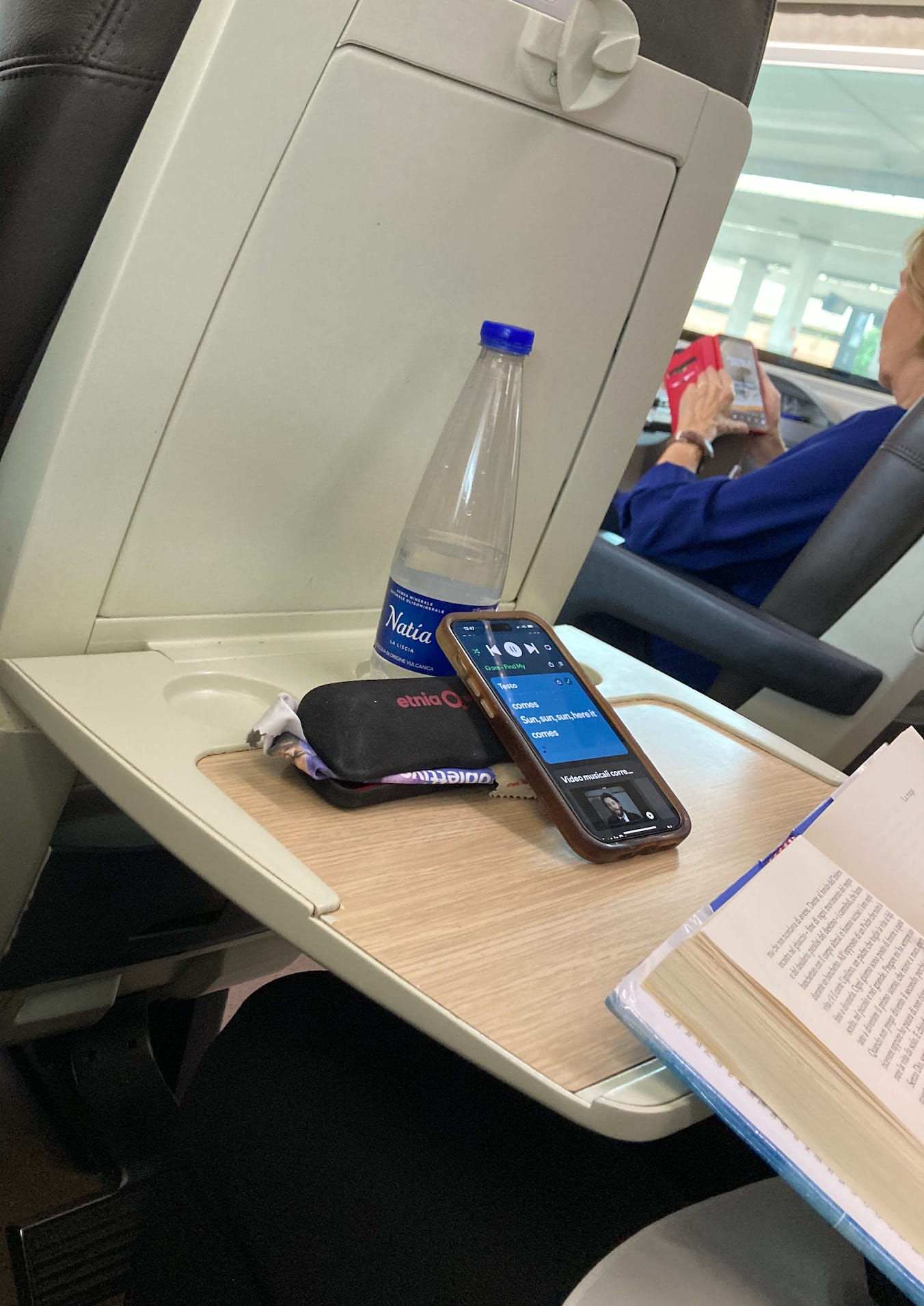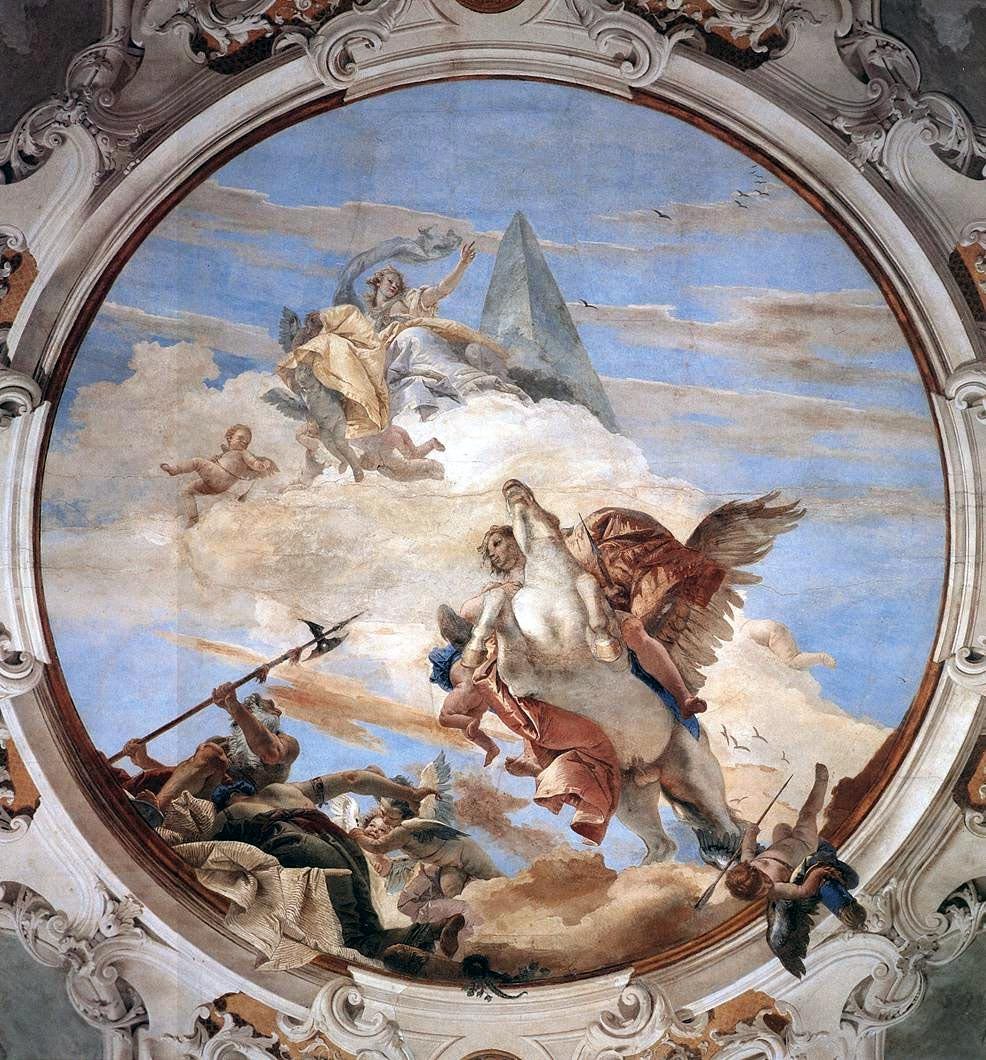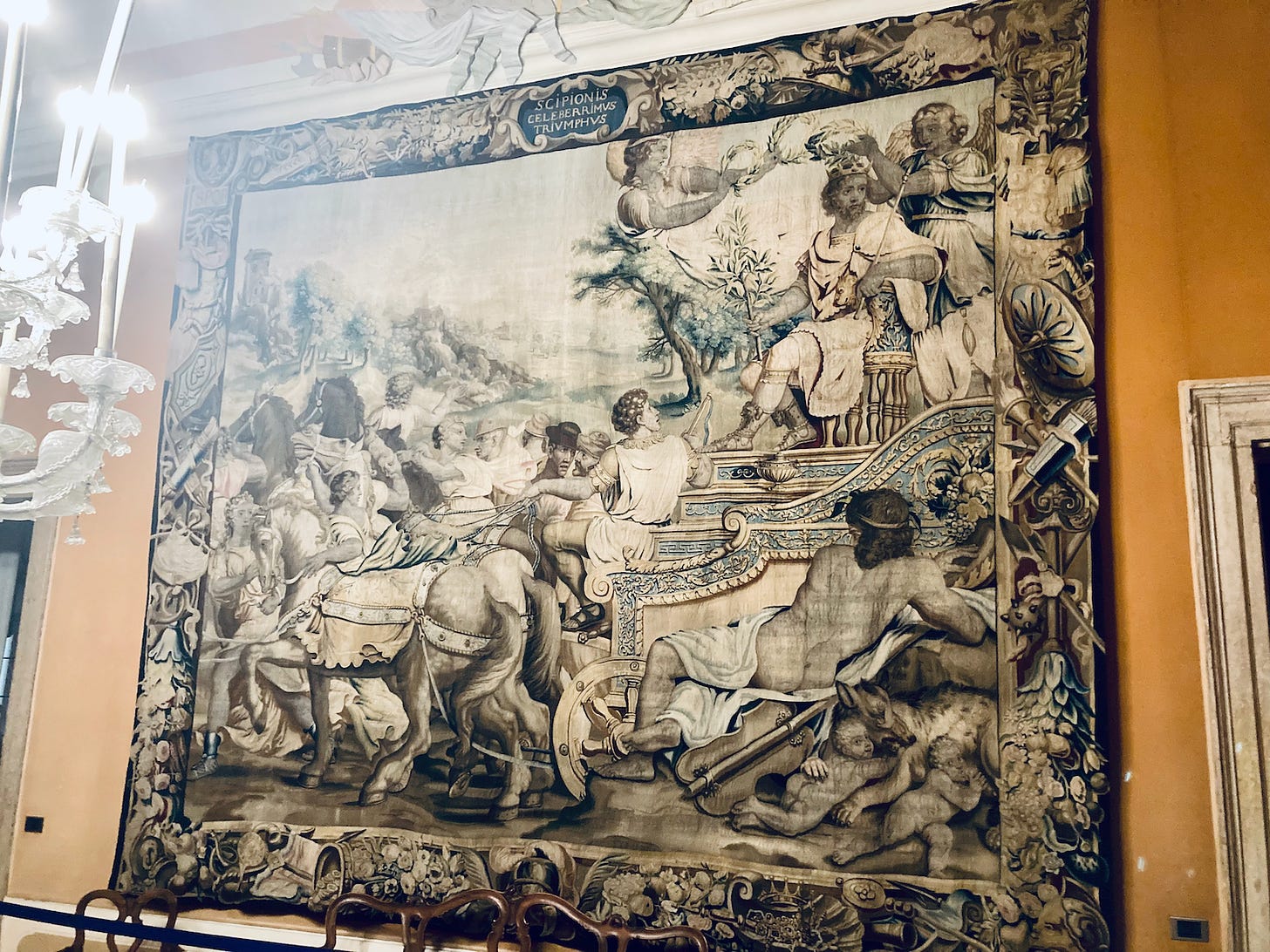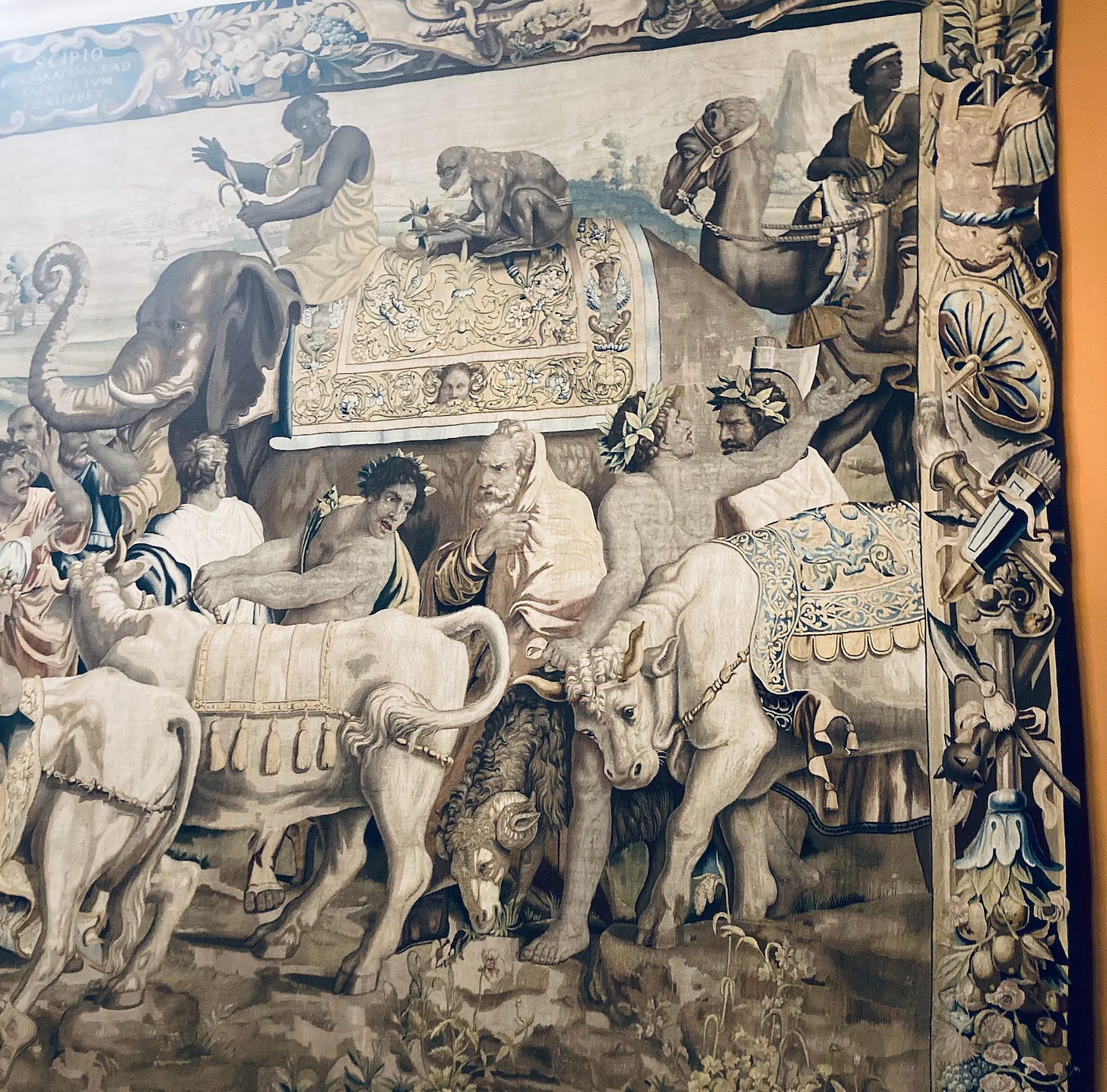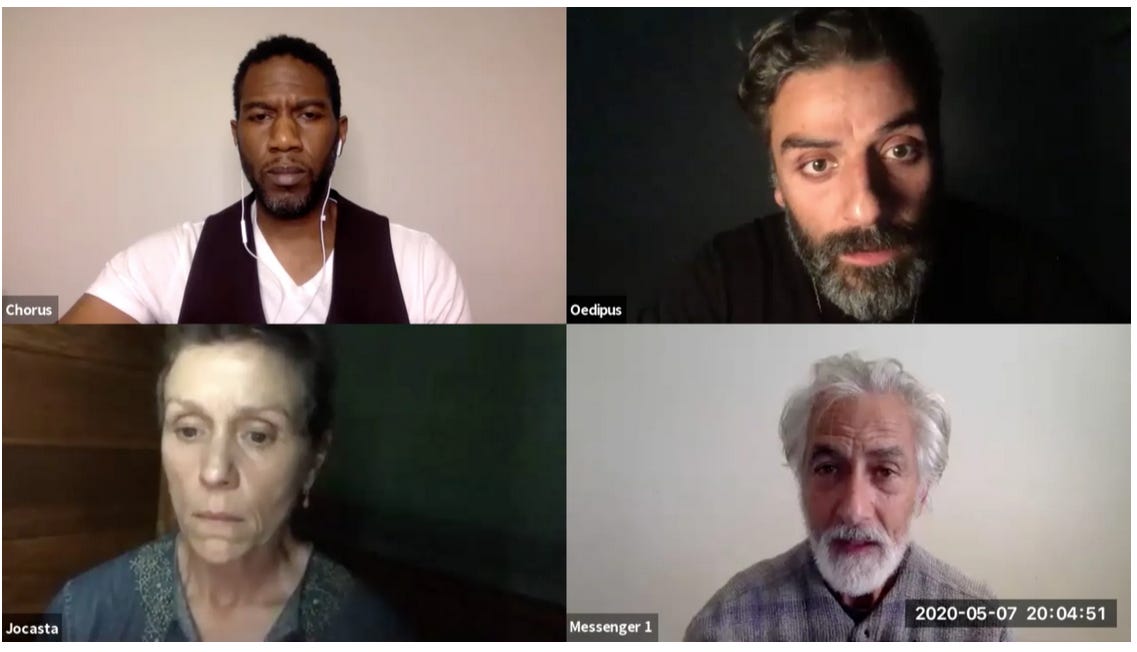Intrepid readers! Thank you so much to everyone who came to my conversation in Milan with Vincenzo Latronico (perfection!), including
of the hallowed bassotto socks, whose interview is up here, beautifully translated into Italian and including a brief discussion of this Substack, a.k.a. “la newsletter” (sending me down a rabbit hole re: why it isn’t “il newsletter,” except that some people do seem to say “il newsletter”; but I conclude from this terrifying post that they are incorrect, because “letter” is feminine in Italian—which made me think (a) what a crazy mental process for Italian speakers to have to do for non-Italian words, and (b) what is going to happen to gendered articles the world over! exciting times!).From Milan, I added on a couple of quick side trips, including 2 days in Venice, which is what I wanted to write about today, because I think it’s the first time I ever went anywhere where I hadn’t been invited, without any institutional affiliation, without knowing anyone, to do open-ended “research” that wasn’t trying to answer any particular question—I just had a feeling it’s relevant for my book. It felt dubious at first, but then I thought: “How does Venice fit into In Search of Lost Time?” What’s even the plot reason for him going? Swann gave him a postcard? But that paving stone in St. Mark’s unlocks everything…!
So that’s the advice component of today’s post: if there’s some side destination that feels interesting or meaningful, or potentially related to a creative project, where you’re like “I hope I have some reason to go there someday”… guess what, you do have a reason, because that feeling is the reason. Of course, there are many blocks to prevent a person from taking such detours, the obvious ones being time and money. But I have noticed in my own case that sometimes “I don’t have time/ money” is an excuse to not do something where I’m worried that, if I do it, I might feel like a loser with no reason to be where she is. But why do I need a reason; what does a reason mean? (Those are real questions.)
This is making me think of Julia Cameron’s idea of “the artist date,” in The Artist’s Way (as a technique to help with creative work). These quotes are from a handout I use in my writing class at Barnard:
An artist date is a block of time, perhaps two hours weekly, especially set aside and committed to nurturing your creative consciousness, your inner artist. In its most primary form, the artist date is an excursion, a play date that you preplan and defend against all interlopers. You do not take anyone on this artist date but you and your inner artist. No lovers, friends, spouses, children—no taggers-on of any stripe. If you think this sounds stupid or that you will never be able to afford the time, identify that reaction as resistance. You cannot afford NOT to find time for artist dates.
Your artist needs to be taken out, listened to. There are as many ways to evade this commitment as there are days of your life. “I’m too broke” is the favored one, although no one said the date need involve elaborate expenses. Your artist is a child. Time with a parent matters more than monies spent. A visit to a great junk store, a solo trip to the beach, an old movie seen alone together, a visit to an aquarium or an art gallery—these cost time, not money.
Think of the child of divorce who gets to see a beloved parent only on weekends. (During most of the week, your artist is in the custody of a stern, workaday adult.) What that child wants is attention, not expensive outings. What that child does not want is to share the precious parent with someone like the new significant other. Spending time in solitude with your artist child is essential to self-nurturing.
Commit yourself to a weekly artist’s date, and then watch your killjoy side try to wriggle out of it. Watch how this sacred time gets easily encroached upon. Watch how the sacred time suddenly includes a third party. Learn to guard against these invasions.
I used to have everyone in the class (myself included) go on artist dates and report back to the class, but making it an “assignment” seemed to cause the students to go on “productive” dates, which was ironically sort of unproductive. So, now I just tell them to do one per month, and I say that the point is not to multi-task or problem-solve, but to be mindful of yourself as a person in New York (or wherever you are).
One of the most fun parts of teaching is getting to try things out and see what does and doesn’t work with different people. There is definitely a kind of universal tendency to make fun of the artist dates… but I see that they really do change things, around for some people who don’t feel like they have permission to take writing seriously. And so much about writing is about transporting things from inside your head to outside your head—or, to put it differently, mediating between the unconscious and the rational mind—and there’s something really powerful about linking that process to a physical outing in the real world.
Anyway, back to Italy. There was one small snag in my plans, where it turned out that the only possible date for everyone to record the Q/A for the Idiot epidode of the BBC World Book Club was the day of my travel to Venice. At first I thought it meant I couldn’t go… but then the BBC kindly offered to book a studio in Venice that evening. I was still a bit stressed, because by point of origin that morning was the Tuscan countryside, which involved changing trains in Florence, so what if something was running late... but everything worked out. That is, the Florence train was twenty minutes late; and once I was on board, I found the person in the assigned seat next to mine singing “Here Comes the Sun,” loudly. By that point I was feeling mildly annoyed and at odds with my environment.
But I reminded myself that (a) I had scheduled a 60-minute buffer with the studio, and (b) whenever possible, it is a relief to let go of annoyance at people who are innocently/ obliviously enjoying themselves. Then I was able to fully drink in the details of the scene, e.g. my neighbor, having set up a phone karaoke station on her tray table, was also vigorously underlining and annotating a hardcover book, at one point writing “VERISSIMO” in the margin next to the opening of The Inferno.
I did some Googling to find out the book; it was this one, about what The Odyssey can teach you about the art of being mortal. By then I was thoroughly delighted by my seat companion, and felt sorry when she disembarked at Padova.
I got to Venice with exactly enough time to rush to the hotel on public transport, drop off my bag, and rush back the studio—which would have been a drag in most cities, except that this is what it looked like out the window of the public transport.
It further emerged the RAI headquarters, where the studio was reserved, are located inside a baroque palace that is usually closed to the public.
When I arrived, at six in the evening, there was a pleasant off-hours vibe; everyone was super-nice, and acted like I had a legitimate purpose for being there. There were some difficulties with the sound, so the recording took longer than expected, but tbh I was glad to have extra time to think over the amazing (and sometimes tough) questions that came in from around the world—I particularly remember Ana, age 14, from Brazil, who asked about privilege, and Godfrey from Malawi, who asked about “success.” Another caller, Chelsea Spear, a.k.a. Travels With Brindle, has written an Idiot-inspired album called “Notes from Undergrad” that you can listen to here.
Meanwhile, in the studio, there were two TV screens showing RAI broadcasts, and at some point, one screen was showing construction-related traffic problems in Verona, while the other showed Buster Keaton’s train stunt in “The General,” which was somehow very moving to watch at the same time.
We wrapped up around eight, and the sound engineer, who I think felt sorry about the tech issues, offered to show me the ground floor. We went down some deserted stairs and into a darkened room, and then he turned on the light—and there was a ceiling by Tiepolo!
Another room had these bonkers tapestries:
Feeling more and more as if I was in a dream, I checked my phone and found an email from an editor I hadn’t spoken to in more than ten years, asking me to express a 400-word opinion on the indictment of NYC mayor Eric Adams—a development of which I was learning for the first time—in light of its relationship to Turkey.
I stumbled out of the palace into the balmy September night and scrolled through the indictment. My first thought was: “Dude: why would I have any opinion on this.” But for the next hour or two I couldn’t stop thinking about the relationship between government and wealth and art—about whether we might still be at an early stage of politics, not that different from the Venetian city-state, where politics is about control and preventing violence and consolidating influence and amassing wealth for the production of luxury goods (including art)—and whether someday there might be a politics based on freedom. (Partly it’s because I read that Jumaane Williams would be the acting mayor if Adams resigned—and I feel such fondness for Williams, ever since I saw him play the Chorus in the Theater of War’s pandemic production of “Oedipus Rex,” which seemed to sort of be about different versions of the polis.)
To make a long story short, I wrote the opinion piece after all. 😂😂😂 I still can’t believe I did this, since I basically do not do assignments anymore. Tbh part of the calculation was the assumption that I would get paid at least the cab fare from JFK—but, somewhat hilariously, I have yet to see a cent, and my email inquiries have gone unanswered! (My own fault for not asking beforehand; it somehow didn’t occur to me that a (billionaire-owned) major US paper was gonna dine-and-dash their opinion pieces.)
I’m still glad I did it, because it motivated me to externalize some thoughts into writing in a speedy fashion—and the next day I saw a ton of art, some of it truly inspiring, and I am confident I could not possibly have seen or metabolized even one more beautiful thing, no matter how few interviews or opinions I had gotten involved in.
Part of the plan today was to share some impressions from the Biennale, but it will have to wait for another time. Well, except for this one picture from the Mongolian pavilion, which expresses, I realize, what I always sort of expect to see when I walk into a room:
Coming up, as a bonus for paid subscribers (I appreciate you guys so much more than I appreciate Jeff Bezos): some more thoughts about the reasons for being places; how this is related (for me) to not being a parent; plus a very short (400-word) passage from the next Selin book, which I read from last week at NYU.
Thanks, everyone!
Keep reading with a 7-day free trial
Subscribe to The Elif Life to keep reading this post and get 7 days of free access to the full post archives.




